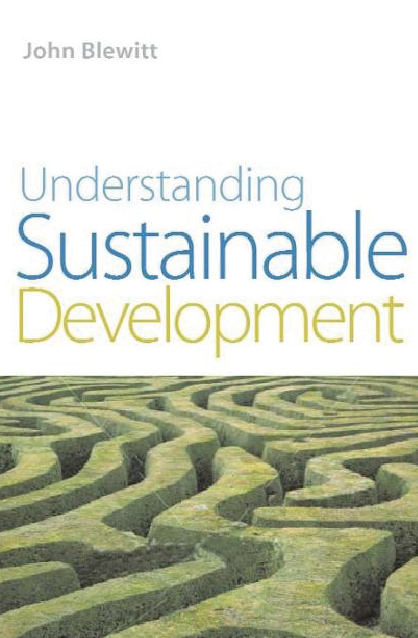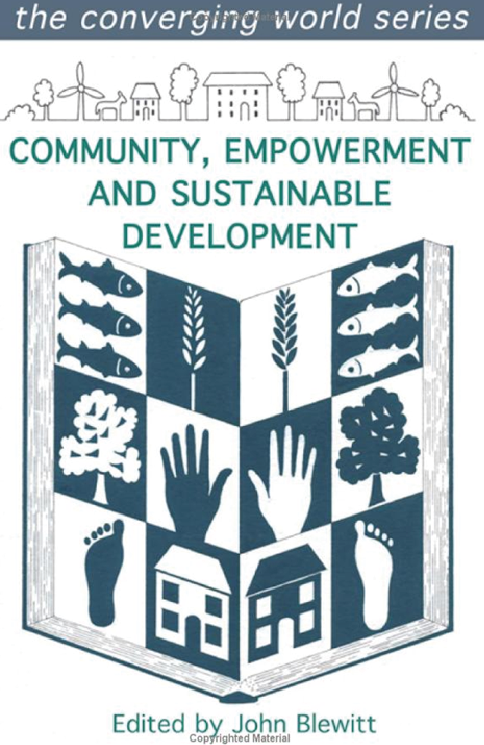Aubrey
Thank you for your email.
Please add my name to the list of signatories.John
Dr John Blewitt
Senior Lecturer Sustainability and Media Communications
Co-Director MSc Social Responsibility and Sustainability
Aston Business School
Aston University
Birmingham
Creative Policy Solutions: Contraction and Convergence
Aubrey Meyer, musician and composer, former member of the UK Green Party and co-founder of the Global Commons Institute in 1990, is an active promoter of climate mitigation through ‘Contraction and Convergence’ - a practical and equitablc approach to combating climate change. He believes that those economists who argue that climate mitigations is too expensive a policy option effect ively condone the murdering of many of the world's poor. He argues (Meyer 2000) that although greenhouse gas emissions have been accumulating in the atmosphere as a result of industrialization for over 200 years, suggesting that in principle every citizen on the planet has an equal right to emit, there must be an equitable individual allowance based on safe global emissions targets provided by the best scientific understanding available.Contraction and Convergence offers a simple model on which an international agreement on greenhouse gas emissions can be based.
It can be achieved in three stages: -1 securing an agreement on a cap on CO2 concentrations in the atmosphere;
2 calculating the speed at which emissions need to be reduced to reach that target;
3 calculating the consequent total carbon budget and allocating a per capita allowance throughout the world.The result will be that per capita emissions from each state wil converge at a fair level while the global sum of emissions will 'contract’. Meyer believes that greenhouse gas concentrations should contract to 450 ppm and that convergence to equal per capita emissions should be achieved by 2030. This process requires the creation of a carbon currency, which could finance clean technology and eradicate Third World debts, combat global poverty, and minimize the economic differences between the developed and developing worlds. As Flannery (2005) notes, this ‘strong medicine,' could be the foundation for a new Kyoto that does away with ‘free-riders’ but will mean definite political and economic costs for the developed nations. Contraction and Convergence is thus a vehicle for achieving global equity not only in CO2 emissions but also in economic wealth, prsoperity and human well-being. The rich nations of the North are by far the biggest emitters of greenhouse gases. Even today, Africa's accumulated emissions are a small fraction of those produced by the UK. But Contraction and Convergence can only be realized of the participation, dialogue, debate and accommodation that is beginning to characterize global politics in major areas of environmental and sustainability policymaking develop further. NGO pressure groups, independent think-tanks, swcientific organizations and corporate and government bodies, which form 'epistemic' or knowledg-based communities must work with rather than against each other if agreement on climate change is to be secured. As Gough and Shackley (2001. p332) write: -
"The science-policy nexus represented by the IPCC and supporters of the UNFCCC Kyoto Protocol, with its inclusion of Government officials, international organizations, scientists, NGOs, business and so on incorporates the key elements of an epistemic community. A distinctive knowledge-based approach to climate assessment and policy has emerged within the IPCC in which the NGOs have been instrumental both as expert advisors and in provideing the legitimacy of inclusiveness needed for the epistemic coalition to have sufficient authority. The fact that environmental NGOs (ENGOS), governmental and intergovernmental actors, the scientific establishement and even some business groups are in coaltion can be atermendously powerful influence. NGOs that have helped to create the climate change epistemic community have needed to move their own terms of reference towards science and technical policy measures and resonses away from ethics and overtly political matters, such is the price of membership of the coalition. This is to shut the door on the use of a range of potnetially useful concepts and devices such as global equity and North-South development."
Understanding Sustainable Development
John Blewitt
The Converging World Project is a social enterprise that uses the ideas of Contraction and Convergence to reduce the differences in resource us. Aubrey Meyer the orginator of the concept has described it as a beautiful model and it is know by some as a triple-decker sandwich because of its three disctinct benefits.
Community, Empowerment and Sustainable Development (Converging World Series)
John Blewitt



